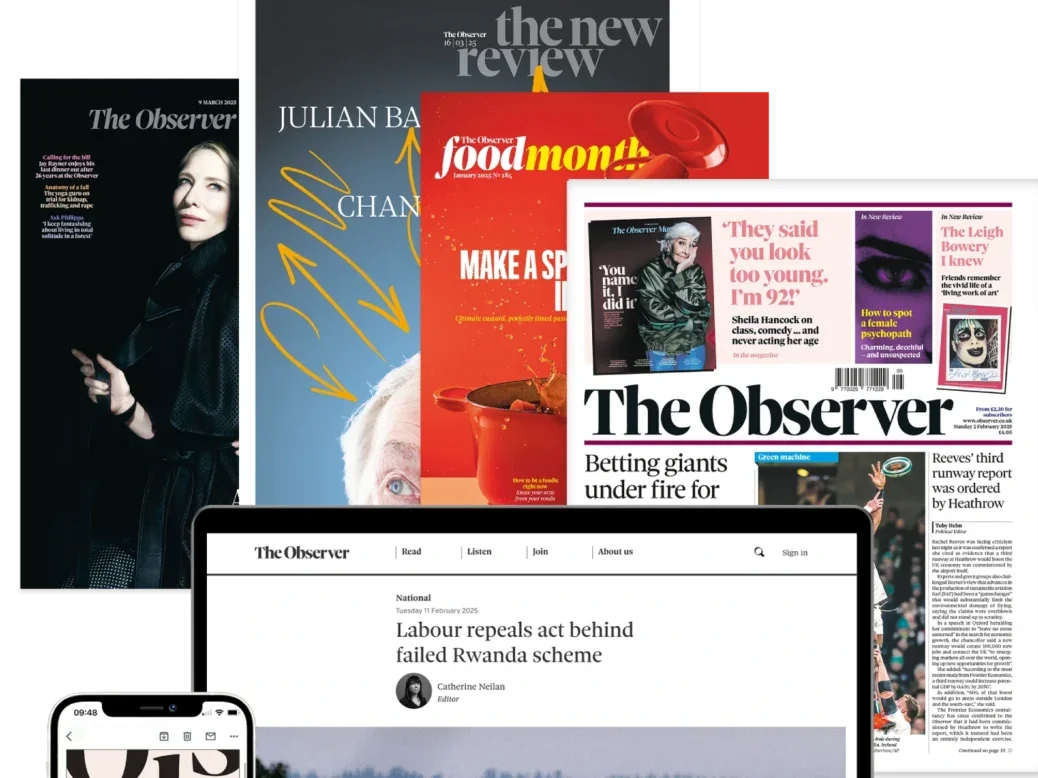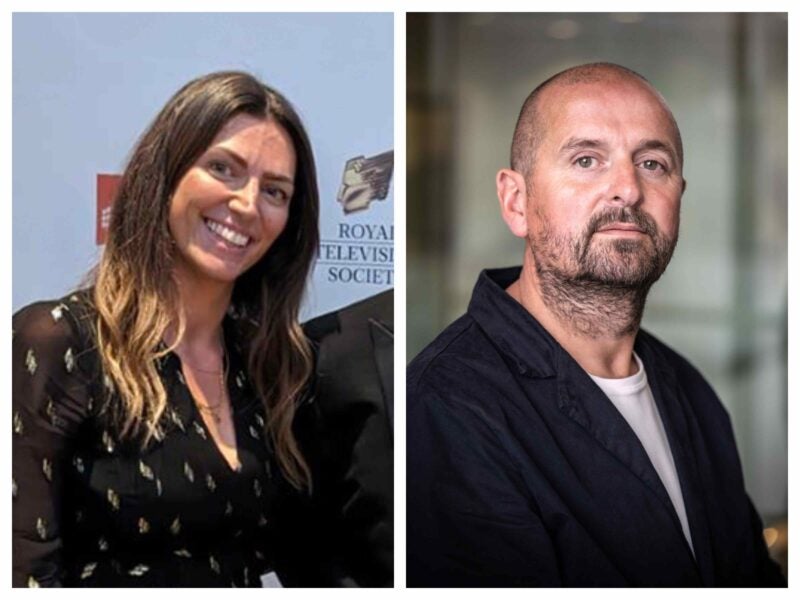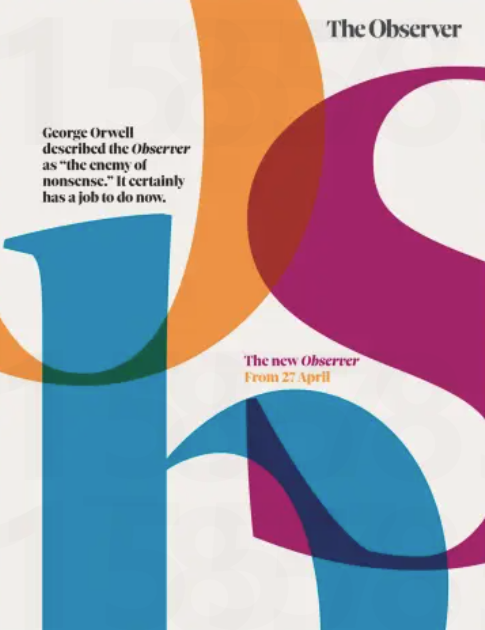
[ad_1]

The first dedicated site for Observer will be “a place where people understand what is going on in the main headlines” but he will not try to compete with the BBC or even his old colleague in the Guardian.
Observer.co.uk“It was transferred from the Guardian Media Group collection to Media Media:
Urgent news and daily updates will not be a priority for the site, but it will continue to fight for breaking out and publishing investigations in setting the agenda. “If there is anything, we only say that we add to it in terms of podcasts and newsletters.
“But news, culture and elegance are the main pillars of our newsroom,” she added, noting the traditional “investigative and international” news coverage of the brand and other columns through the new observer observer, the Observer magazine, and the food observer monthly.
“We are comfortable with the idea that we will be a second reading of people, and that they will go and read the main headlines on FT or BBC, but they will come to us until they understand everything.”
It is also suitable for the turtle traditions, founded by the former news editor and BBC Director James Harding, the editor -in -chief of the observer now in 2018 with the campaign message: “We do not do breaking news, but what drives the news. Not the news as it happens, but when you are ready.”
The digital observer will have a daily news message via e -mail and will create a list of podcast later in the year. Events and festivals, the type of model that the turtle uses previously, is also on the cards.
The launch of the website on Friday is the first repetition: a new version is built, along with an application. The dynamic Paywall will be added when this is ready to go in several months, but now the content will be free with the first -party data strategy. Press Gazette said during the sale that the goal is to reach 100,000 digital subscribers – a recently accessible milestone via Mail Online with its partial wall in less than ten months.
CO-CEO “is really ambitious” about the printed observer
The digital launch comes in addition to the continued weekly publication of The Observer, with the first version of the turtle ownership on Sunday. The observer does not publish the printed ABC character, but it is believed to sell in the area of 100,000 copies a week.
When asked about the possibilities of the physical paper in a market for a decrease in continuous printing trading, Richard Forenes, co -executive chief, told the newspaper: “I am really ambitious in the observer and his prospects for printing and digital. I will not put a number on it, but I feel that I am ambitious about it.”
He continued, “I will not settle on the current situation at all. I think we can achieve the direction of the market, and I think we can really convert perception, with readers and advertisers. So they are both commercial lines that I feel ambitious.”
Forenes, who has finally spent 27 years in the Guardian as head of the strategy that helps lead the acquisition, moved to the media on March 10. He works with Co-Coo Emma Sullivan, who worked to sell as a turtle administrative director. Lucy Rock, the former editor of the observer and the editor of the Acting, moved to the turtle as an editor of printing.

Forenes said that work has been going on since January about “What is the printed version that we want to put on the market, not only from a liberal perspective, but also how do we want to feel?”
He added: “I think people will really notice a different kind of quality for the observer on that Sunday.”
For example, the newspaper will be printed on a higher degree of paper that Forenes said will be positive for both readers and advertisers.
I also suggested that there will be more pages in the printed product: “We are definitely looking at the magazine, OFM and investing in journalism in both magazines, so there will be better quality, but also more press for people in those pages, which I must say is a great conversation to take place in 2025 – how to provide more readers, advertisers and better quality.
“It looks like a unique conversation in this building now.”

Creative director John Hill described it as “unique at the present time. Most stories are not good news stories. I definitely see this as a good news story.”
Hill, who has been working in Tortoise since its launch in 2018 starting from the slow news of the news, has played the same role in Telegraph and The Times, Press Gazette that the new observer was not fully designed but “everyone will notice some changes.”
It has been disturbed that there are six “interventions we have done that should indicate readers that this thing is different from the previous week.” The re -imagination of Fuller will follow, similar to the upcoming digital re -launch, later this summer.
The brand of the turtle is largely combined to the observer, although the most expensive-the turtle is investigating the podcast, which has a younger audience of females from the average-will continue.
The daily email will be renamed from Tortoise’s Daily Senseemaker, and slow news and podcast meeting under the observer logo.
“We will all work with the observer,” Forenes said. The turtle has so far made losses, standing at more than 20.3 million pounds between 2019 and 2023.
Some of the added names to the newsroom so far include former Times journalist Rachel Silvertter as a political editor, former crime correspondent in Times John Simpson as a home affairs editor, the new representative of the state, Tom Gatti as a literary editor and former football correspondent in the New York Times Roy Smith, football correspondent.
The first priority between the higher leadership was to ensure a smooth transition for the new team, which consists of a mixture of new appointments as part of the investment of 25 million pounds over the next five years, the former turtle journalists and the monitored journalists who chose to move.
Observer employees have been given an option if it should be moved to the turtle or take a voluntary repetition package. Press Gazette understands about half of the Observer employees, they decided to move to the new owner, and the strength of the feeling of some against the deal was shown by two guardians and monitors for 48 hours in December.
The “clear excitement” among the remaining observer employees
Furnce said it was a “very generous” package, adding: “This is true, I think, people do not force come if they do not want it and everyone had a choice.
“I think many of the factors that can dictate this choice, from the age of someone to other things that occur in his life until they oppose what we do, and because the observer leaves the Guardian. Everyone had different options to take, and it is clear that anyone who does not come we want to get the best of the matter, and they all played a big role in making the observer what it is today.
“What we know and what we can see is that the people who chose to come here – here in the building, there is a clear level of excitement. They all collect new ideas and new thinking. They all work wonderfully with the turtle crew. We haven’t been to do as much as we think we should do in terms of combining these teams.”
Forenes pledged that the acquisition “is not just a production of the observer from a different building, which I think may be seen last year. It is related to the combination of two really wonderful news rooms …”
In addition to employing editing, as the roles continue to fill, Forenes indicated that the observer gets a commercial team for the first time in many years.
He said that there will be a big difference that there will be “people who are selling actively for the observer for agencies and agents every day … People think about marketing the observer, and people who are thinking about their printed sales, and they are completely intended for the observer.”
Forenes added that this “adds to this feeling only to create something completely special. Don’t see many of these types of employment on Fleet Street.”
Express Furnes, Cumms and Hill separately from a feeling of mixing the culture of the turtle arising in the world with the sanctification of the oldest Sunday newspaper in the world. “I think there can be some real magic in it, and I think this is what we are all enthusiastic about,” Kamings said.
“We are not naive in believing that there will be no bumps and some learning along the way, but I think there is an amazing spirit to vaccinate our arms, accomplish them and get them there.”
Email piged@pressgazette.co.uk To refer to errors, give the story tips or send a message to publish on the “Letters Page” blog
